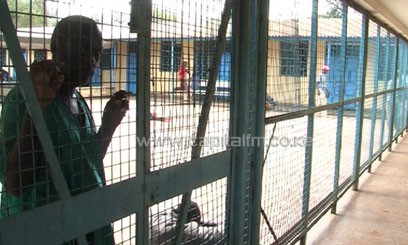
Legal barriers delay discharge of recovered patients at Mathari hospital » Capital News
NAIROBI, Kenya, Feb 20 – Mentally ill patients committed to the Mathari National Teaching and Referral Hospital by court orders remain confined despite having fully recovered, due to complex legal and bureaucratic challenges that delay their release.
The prolonged detention of these individuals has sparked concerns among mental health advocates, lawmakers, and hospital administrators, who argue that keeping recovered patients beyond their treatment period is not only a violation of their rights but also an unnecessary strain on the hospital’s already overstretched resources.
According to the hospital’s Chief Executive Officer Dr. Julius Ogato, discharging patients who were admitted under court orders is a complicated legal process requiring judicial clearance.
This requirement has left many fully recovered individuals stuck in the facility for years due to delays in legal approvals.
“We have several patients who are stable and ready to be released, but we cannot discharge them without the necessary legal clearances. Unfortunately, the process is slow due to bureaucratic inefficiencies in the judicial and administrative systems,” said Ogato.
He revealed that some individuals have been detained at Mathari for over 20 years after recovery because there is no clear legal framework to expedite their release.
“The law requires us to wait for a court directive, but the judicial process is slow, and follow-ups after admission are often neglected,” Ogato noted.
Legal Framework and Systemic Challenges
The Mental Health Act (CAP 24, Section 26(3)) states that an individual suffering from a mental disorder should only remain institutionalized if they pose a danger to themselves or others.
However, the law does not provide a clear mechanism for reviewing and releasing recovered patients who were confined by court orders.
Current legal procedures dictate that once a person is declared mentally unfit to stand trial, they must remain in a psychiatric facility until deemed stable.
However, even after recovery, their discharge is not automatic and requires formal court approval, which is often delayed due to lost records, lack of follow-ups, and administrative inefficiencies.
In some cases, families refuse to take back recovered relatives due to stigma, financial constraints, or fear of relapse, further complicating the discharge process.
Urgent Legal Reforms
Endebess MP Robert Pukose, who chairs the National Assembly Health Committee, has condemned the prolonged detention of recovered patients, terming it a gross human rights violation.
“It is unacceptable that a person who has fully recovered is still locked up due to administrative inefficiencies. The government must implement a proper system to ensure these individuals regain their freedom and are reintegrated into society,” he stated.
Pukose has proposed the establishment of a special tribunal or fast-track judicial mechanism to regularly review the cases of patients held at mental health institutions under court orders.
“If a medical professional confirms a patient is stable, there should be a structured process to facilitate their immediate discharge. We cannot have people confined indefinitely just because of judicial delays,” he stated.
Mathari National Teaching and Referral Hospital, Kenya’s largest mental health facility, is already struggling with overcrowding and limited resources.
The continued detention of recovered patients further worsens the congestion problem, reducing the availability of beds for new, critically ill patients.
“We are overwhelmed. Every bed occupied by a recovered patient who should have been discharged is a bed taken away from someone who urgently needs psychiatric treatment,” Ogato emphasized.
Pukose has vowed to push for legislative amendments to streamline the release process for mental health patients who have recovered.
“This issue requires immediate action. We need to amend the Mental Health Act and related laws to ensure recovered individuals are not unjustly detained in hospitals,” he stated.
At the same time, Ogato has urged the Judiciary to conduct regular case reviews for patients at Mathari who were admitted through court orders.
“The Judiciary must establish a system where they periodically review the cases of patients confined under court orders. This will help prevent unnecessary prolonged detention and ensure those who have recovered can reclaim their freedom,” he said.